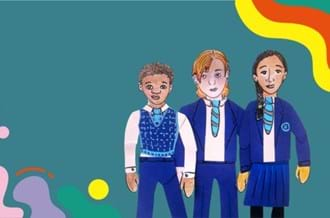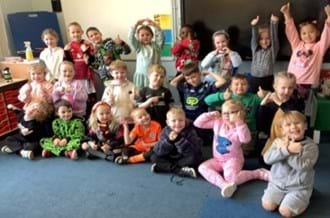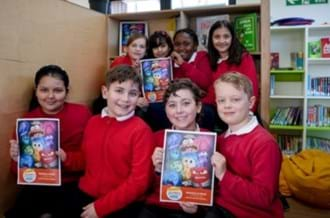Promoting good mental health for children through nature
Promoting good mental health for children through nature

James Emmett
Regional Clinical Lead for The North – James is a qualified counsellor and clinical supervisor with over 15 years’ experience working with children and young people. James joined Place2Be in 2013 and holds national responsibility for Group Work, including our Journey of Hope and Racial Identity programmes.
This week (10-16 May) is Mental Health Awareness Week, and this year’s theme is nature. James Emmett, Regional Clinical Lead for Midlands and North, shares his tips on how to promote good mental health for children through nature.
We know that spending time in nature or green spaces can have such a positive impact on our mental health and wellbeing. In fact, during the pandemic, the Mental Health Foundation found that 45% of people said that being in green spaces had been vital for their mental health.
We also know that many young people are really passionate about the environment and protecting the planet, and are worried about things like climate change and air pollution. A Newsround survey in 2020 found that 1 in 5 children said they’d had a bad dream about climate change.
We all have a social responsibility to look after the environment, but we need to ensure that children and young people feel able to do this, without adding to their existing worries. So this Mental Health Awareness Week, and beyond, how can we help children to connect with nature, and support their mental health?
Be active
Staying physically active is a key part of looking after our mental wellbeing, and doing it outside is a great way to help children connect with nature. Go for a walk, or to play, in the green spaces near you – this could be an inner-city park, a forest, along your local river or canal.
Encourage children to take notice of everything around them – they could look up at the trees, count the number of birds or bees they see, or the number of dog-walkers!
Be creative
You don’t have to be ‘in nature’ in order for it to help your mental health. Help children to connect with nature by reading a book about it, listening to nature sounds, or doing a nature-themed craft.
Our Art Room team teamed up with WWF to create an art activity for primary-aged children, focused on nature. The ‘Growth’ project takes children on a journey through nature, providing a supportive space to think about and explore children’s feelings. You can download the project for free.
Give back
It can be really rewarding for us to be kind and compassionate. Giving back to nature by supporting animals and wildlife, can really give children a sense of fulfilment.
What could you do at home or school to make your space wildlife-friendly? You could plant bee-friendly wildflowers in your garden or window box, or make a bird feeder for the local birds. We love this guide from RSPB on making a bird feeder out of recycled materials.
Get growing
Some research suggests that gardening can improve our wellbeing, reduce stress and promote family connection. Growing plants can be such a rewarding process for children – and for adults. Watching and helping something to grow can give children a sense of achievement, satisfaction and pride from nurturing the plant.
You don't need access to a garden, or expensive gardening tools, in order to grow something at home or school. We love these easy ideas from The RHS’s ‘Bringing the sunshine inside’ campaign.
Other resources you may find useful:
- Mental Health Foundation and WWF - ‘Thriving with Nature’ guide
- Anna Freud Centre – Spending time in nature
- Mentally Healthy Schools – Mental Health Awareness Week resources
- RHS – Gardening for health and wellbeing
- RHS – School gardening
- Child Mind Institute – Why kids need to spend time in nature
Visit our Coronavirus: wellbeing activity ideas for families page for more activity ideas and resources from Place2Be.
News & blogs

Three charities launch wellbeing video for young carers
Three charities have joined forces to launch a new video aimed at fostering the wellbeing and creativity of young carers.
Read more
“Know Yourself, Grow Yourself”: A look back at Children’s Mental Health Week 2025
During Children’s Mental Health Week 2025, we encouraged people to embrace self-awareness and explore what it means to them.
Read more
Smiley Movement visits Gwyn Jones Primary School for Place2Be’s Children’s Mental Health Week
Smiley Movement and Place2Be visited Gwyn Jones Primary School to see how they're celebrating Children's Mental Health Week.
Read more



